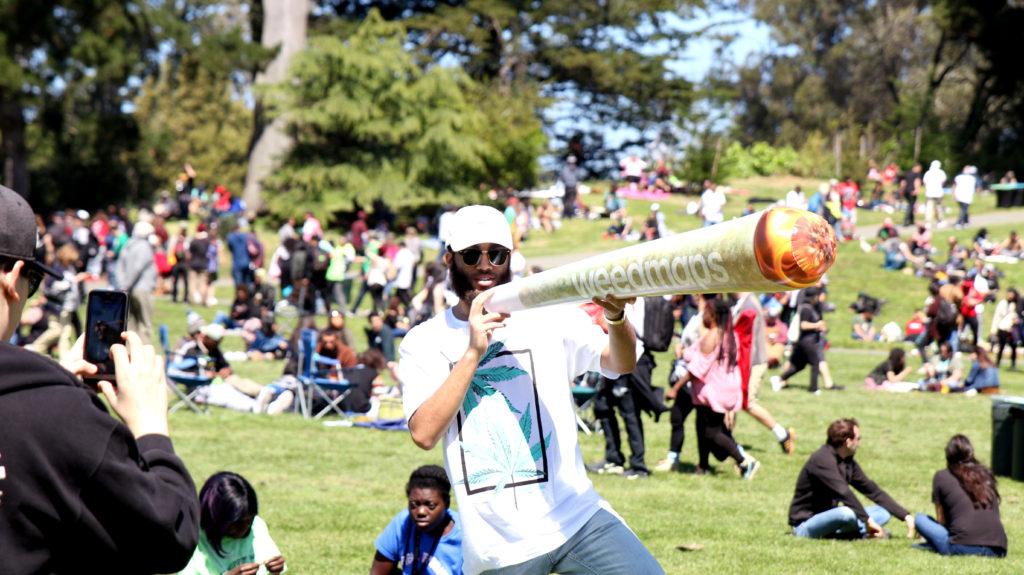Thousands of people gathered for the annual 4/20 festivities in Golden Gate Park, the first since the legalization of recreational cannabis. From cannabis infused brownies to lemonade, attendees had their pick of product but not necessarily the product they would have chosen.
Recreational sales for the substance began on Jan.1 in California after approval of Proposition 64. Unfortunately for recreational smokers, that came at a cost.
According to the California Department of Tax and Fee Administration, dispensaries must impose mandatory a 15 percent state tax, which means buying from dispensaries is a luxury that not many students can afford.
Gabriella Proxmire, an SF State communications major, thought that while the legalization has made it more acceptable to skeptics, the tax is not economically feasible for her.
“Now that the tax has gone up, $20 to $40, so I never order. I just you know get it from my friends,” said Proxmire.
For some cannabis enthusiasts, this is their first time consuming cannabis legally on 4/20. Some students even feel more at ease that they can enjoy the substance legally.
“It’s a lot more friendly. You can feel comfortable and have the cops around you and knowing that they’re okay with it,” said Reuben Ruiz, a San Jose State University economics major, about the positive side of legalization.

However, Ruiz is conflicted on his thoughts about the cannabis tax because although he feels that the legalization has lowered crime rights it has inconvenienced both the dispensaries and customers.
Buying cannabis at street value has maintained its appeal because they set dealers make own prices, typically much lower than dispensaries, as a result of not having to account for state taxes.
“A lot of drug dealers would rather sell independently than with an organization because you get taxed a lot more going inside of a store,” said Ruiz.
“It’s more accessible due to delivery services. It’s also easy to drive to and just get it, like going to a cafe in the morning but the taxes on it, the change in price point, is not,” said Dominic Eslamian, an SF State earth and climate science major.
The inaccessibility of recreational cannabis’ pricepoint trumps the location accessibility. Dispensaries continue to have a leg up on safety however.
Dispensaries provide a sense of security as consumers are buying from an establishment that regulates the quality and potency but even so students don’t have the kind of budget to purchase it.
Still, despite the complicated relationship that students have with the taxing of recreational cannabis, they agree that an overwhelming positive change has been the change in attitude surrounding its use.
Many who used to frown upon the substance that has incarcerated many for decades are beginning to be more open with it, including Proxmire’s grandmother.
“My grandma use to hate weed but now she thinks of it as an economy booster, which is really exciting because everyone is starting to come to acceptance. This is a part of our generation, this is a part of our world,” said Proxmire.
As the 4/20 celebrations came to an end, positive energy and good morale filled the atmosphere as many attendees consumed the budget-friendly marijuana infused products being sold at Hippie Hill.
“Everyone is just trying to have a good time,” said Proxmire.







